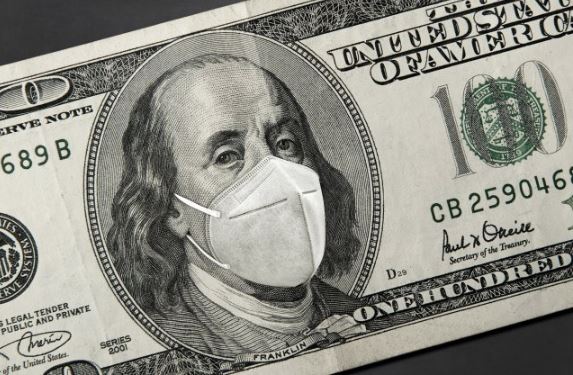Evaluate your reasons for needing Mortgage Relief Assistance.
Are you still able to make your mortgage payment? If you are financially able, make your payments as normal. If not, check with your lender servicer to see if you are eligible for Forbearance on your government backed loans. Forbearance simply is an assistance program for homeowners that pauses your mortgage payment. When you are at the end of your forbearance plan, you’ll need to pay the past-due amount, apply for other programs your lender may offer, or see if you can extend the forbearance period. This will not have a negative effect on your credit.

Forbearance would pause your mortgage payment and not damage your credit. This program can vary from lender to lender, but basically will buy you time until you are back to work.
You can see if your lender will add the payments you miss to the end of the mortgage term. Or at the end of the forbearance period, you would pay the missed payments in one lump sum, thus avoiding tacking on to the end of your mortgage term.
Private servicing lenders may have different rules. So you need to check what type of loan you have or visit: who owns my mortgage and how do I find out?
Mortgage Refinancing during COVID-19 (coronavirus)
Interest rates are historically low and it could be an ideal time to obtain a lower mortgage rate or shorten your mortgage term (or both). Some may see this as a perfect time to get some “cash-out” from your home’s equity to build a cash cushion.
It may take to process your refinance application and lenders will be aggressive in obtaining your business during these times. The underwriting process and guidelines will be different now vs. as in the past. We will address this in more detail in the below Underwriting, Appraisals & Closings sections.
Yes times are different to be applying for a home loan, but that is the lenders mission to overcome, not yours. You could benefit in these times possibly like never before. Our refinance guide will help you prepare or view various options. We also have several articles on mortgage programs. Please see mortgage financing options for a library of articles and calculators that will help you along the way.
Locking in the Mortgage Interest Rate
Locking in an interest rate is important and will help give you the peace of mind that your mortgage payment will be what you are budgeting for. Each lender has its own policy regarding lock-in options. And keep in mind during these times processing could take longer than normal.
This is very important when selecting a lender, so you fully understand your options and what their policies are. Lock periods can be anywhere from 15 days to 9 months (long term locks are usually for new construction). They do not come cheap either. The length you need for a lock will impact the costs related to that specific lock period. Most mortgage rate quotes assume a 30 to 45 day lock period.
Underwriting will have its challenges like just about everything else these days. Verification of employment (VOE) is more challenging with so many companies having limited staff. Underwriters need to verify if the applicant is employed or laid off and lenders are developing new ways to satisfy this requirement. When selecting a lender, ask what their current methods are so you know if you can help the underwriter or processor in verifying your employment.
Your assets and debt loads may have changed which can impact your financial profile.
Home Appraisals
New rules are being implemented for the safest method possible for in person in house appraisals. Historically appraisers need to enter your home, but lenders may be rethinking this approach. Some lenders are allowing drive by outside appraisals to reduce the risk of spreading the virus while others are doing “Desk Top” appraisals using data that already exists online for your property.
Ask your lender how they plan on doing appraisals.
Closings in Person or Online?
When all conditions of your approval have been satisfied and cleared by your lender’s underwriter, it’s time for settlement or closing to happen. The title company and lenders will have new guidelines for online vs. in-person closings. Everyone wants to be as safe as possible during this COVID-19 situation, so ask what the lenders current set up is for closings.
You’ll probably want to know “How much cash do I need to bring to the closing?” Or how much cash will you be receiving back if it is a cash-out refinance.
First, be aware that certified checks payable to yourself are required. The important closing papers include the closing disclosure (CD). Request this at least a few days prior to closing. This will be the actual monies you are agreeing to pay (or receive). Review these numbers (with a real estate attorney if possible), to make sure everything is in line for what you signed up for. Ask your loan officer to explain any questions you may have after reviewing the CD.
You will need to have your proof of homeowners insurance prior to the closing. Each lender will have specific requirements for what your homeowner insurance agent needs to provide.
You will be notified of any questions or conditions that are required for a clean mortgage approval. This will need to happen before you can close on your refinance. Not all lenders have great processors, so you should stay in touch with your loan officer to make sure nothing is pending that you can assist with. Be proactive!
Who owns your mortgage?
The loan may be a government backed loan or with a private lender – but why does it matter? Homeowners are sometimes not aware of who owns their mortgage. Loans get sold all the time and one servicer can differ from another on how they handle tough times like these. Internal procedures on helping homeowners with programs to help them not be in default, delaying payments (forbearance), or adding past due payments to the end of the loan. Most lenders now have the tools with the stimulus bill to help you get through this difficult time.
The Consumer Financial Protection Bureau (CFPB) set up a page to help you figure out: Who owns my mortgage?
If you have an FHA, VA or USDA loan then you already know who owns your loan. These are government backed loans just like Fannie and Freddie loans. If a private lender/investor owns your loan then you are subject to their in house guidelines and rules. But the stimulus package also offers private lenders relief tools as well in helping its customers.
Call your mortgage servicer. You can find the number for your mortgage servicer on your monthly mortgage statement or coupon book.
So it matters who owns your mortgage because government backed loans and private lender owners have a different set of rules to go by. Jumbo mortgages will most likely be non-government owned.
- FHA loans: FHA mortgages
- VA loans: VA loans
- Conventional loans: Fannie Mae and Freddie Mac
- USDA Rural Development Loans: USDA (U.S. Dept. of Agriculture)
- Financial assistance: U.S. Dept. of Housing and Urban Development (HUD).
- Below are a few government site links for more information:
https://www.hud.gov/coronavirus
https://www.usa.gov/
Real Estate Housing Market
Spring is typically a popular time of year to buy or sell a home. The housing market has been impacted as many are hesitant to move forward until they know more information where this COVID-19 virus is heading. Federal and local governments and agencies are working together to help the housing industry via the stimulus package(s) and finding ways to save jobs.
Home values surely are being affected with the COVID-19 situation, and impacting home buyers and home sellers who are considering a new move. Homeowners are not sure how their homes value is being adjusted.
Turn to The National Association of Realtors (NAR) for good information relating to the current housing market.
COVID-19 is battering the U.S. economy, with millions of Americans already out of work because of the crisis. That could be bad news if you want to apply for a mortgage or are in the process of finalizing one.
Can you apply for a mortgage without an income?
If you’re applying jointly with another person, absolutely. There are plenty of scenarios where a couple applies for a mortgage where one works and the other doesn’t, so this situation is no different. If you’re applying jointly with a spouse, and you’ve lost your job but your partner has a steady income, there’s a good chance you’ll get approved.
The amount you’re eligible to borrow, however, will generally be lower than the amount you’d be eligible for with a dual income. Therefore, while you may be able to get a loan, it may not be enough to buy the home you want.
What if you’ve lost your job mid-mortgage application?
If you had a job when you first applied for a mortgage but have since been laid off due to the impact of COVID-19, don’t try to hide that from your lender. It’s common practice for lenders to verify employment status prior to closing on a home loan, so you have nothing to gain by not coming clean.
In this situation, whether you’re able to move forward with the mortgage application process will depend on whether you’re applying solo or jointly with someone else, and what that person’s income looks like. If you’re applying on your own, you’ll probably need to pause the process until you’re employed again. If you’re applying with a spouse and his or her income is enough to qualify for the amount you were previously approved to borrow, you’re in good shape.
Unique to the current climate is that many people are out of work temporarily because their employers have shut down as part of the social distancing mandate. If that’s the case, and you expect your job loss to be temporary, talk to your lender and see what options you have. You may need to provide a letter from your employer explaining the circumstances involved, but you may be able to convince your lender to move things forward.
You don’t want to put yourself in a situation where you are liable for monthly payments on a new mortgage, only to not actually get rehired as expected due to circumstances outside your control. We don’t know how long the current crisis is going to last and what economic repercussions it will have. Many experts are already predicting a full-blown recession, during which jobs can easily be lost.
You can pause your mortgage application due to your job situation. It is likely that mortgage rates and home values will drop in the coming months, so if you hold off on buying right now, you could score a better deal down the line.
Historically, real estate returns exceed stocks with significantly less volatility! In fact, since the early 1970’s real estate has beat the stock market nearly 2:1.
Thanks To COVID-19, FHA Mortgage Lending Gets Stricter
The COVID-19 pandemic has led lenders to reassess FICO score minimums. As more New Jersey residents lose their jobs or see reduced wages because of the virus, the risk of foreclosure goes up. Investors who buy mortgage loans will lose out when that happens—and they (or the lenders who sell to them) are not interested in taking on that additional risk by lending to lower-credit borrowers.
The Department of Housing and Urban Development sets the official minimum of FHA loans at 580. It’s 500 if you can make a 10% down payment.
Those are only minimums to qualify for FHA insurance. Lenders set their own credit score requirements based on how much risk they’re willing to take and new FHA FICO minimums can now be 680 —well above HUD’s guidelines. This is happening nationwide. Credit score requirements are either much higher than the official FHA minimum, or tiered interest rates make the loans unaffordable for lower-credit borrowers.
The result is a mortgage market that essentially shuts out buyers (and existing homeowners) who don’t have sterling credit. It also throws off in-progress loans.

